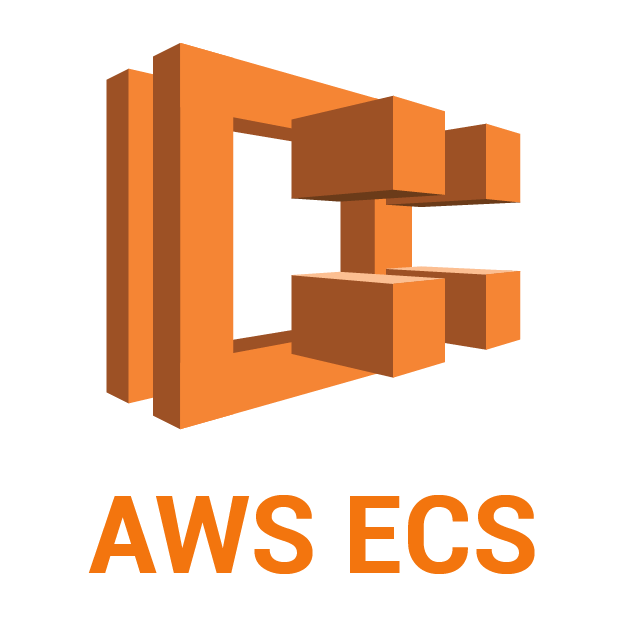How to Optimize and Scale Your Applications with Amazon ECS
Amazon ECS: Simplifying Container Management, Scaling Your Potential. Imagine your applications as a busy restaurant and Amazon ECS as the orchestrator keeping everything running smoothly. Amazon Elastic Container Service (ECS) is a fully managed container orchestration service that simplifies deploying, managing, and scaling containerized applications. By automating resource allocation and workload balancing, ECS lets you focus on building great services while ensuring your applications run efficiently on AWS infrastructure. 1. Key Features of Amazon ECS Amazon Elastic Container Service (ECS) offers powerful tools to simplify containerized application deployment. Top Features: Amazon Elastic Container Service (ECS) streamlines containerized application deployment with automated orchestration for seamless management and scaling. It offers serverless container management via AWS Fargate, eliminating server management. ECS ensures high availability by distributing tasks across multiple Availability Zones and supports customizable scaling to handle fluctuating workloads. With integration into AWS services like IAM, CloudWatch, ELB, and VPC, ECS enhances security, monitoring, and networking capabilities. Technical Specifications: Amazon ECS offers flexible networking with modes like bridge, host, and AWS VPC. It includes advanced task placement strategies such as bin packing and spreading across instances to optimize resources. ECS provides task launch options with AWS Fargate for serverless operations or EC2 for more control. Available globally across all major AWS Regions, ECS ensures scalability and reliability. It integrates with CloudWatch for real-time performance monitoring and adheres to industry compliance standards like ISO, SOC, GDPR, and PCI DSS for secure deployments. 2.Use Cases of Amazon ECS 1.Microservices Architecture: Running and managing microservices-based applications, with each service running in its own container for improved scalability and isolation. 2.Web Application Hosting: Deploying and scaling containerized web applications, ensuring high availability and fault tolerance. 3.CI/CD Pipelines: Automating continuous integration and continuous deployment pipelines by managing containers for development, testing, and production environments. 4.Batch Processing: Running containerized batch jobs for data processing, image rendering, or other high-performance workloads. 5.Data Analytics: Leveraging containerized analytics applications for processing large datasets using tools like Apache Spark or Hadoop. 6.Hybrid Cloud Solutions: Extending on-premises applications to the cloud with ECS, integrating with existing infrastructure for hybrid cloud environments. 3.Amazon ECS Pricing: Pay-as-You-Go Explained Amazon ECS follows a pay-as-you-go pricing model, where costs depend on the resources you use. If you're using ECS with EC2 instances, you're billed for the compute resources based on instance type and usage duration. With AWS Fargate, pricing is based on the vCPU and memory allocated to your containers, billed per second with a minimum charge. Data transfer between services or regions and additional AWS services like CloudWatch may incur separate charges. This flexible pricing structure ensures you only pay for what you use, optimizing costs based on demand. 4.Amazon ECS vs. Google Kubernetes Engine (GKE) Amazon ECS competes with Google Kubernetes Engine (GKE) and Azure Kubernetes Service (AKS), both offering Kubernetes-based orchestration with more control but complex management. Docker Swarm is a simpler alternative but lacks ECS's scalability and enterprise features. AWS Fargate rivals Google Cloud Run and Azure Container Instances for serverless container management, with similar pricing based on usage. ECS excels in integration within the AWS ecosystem, making it ideal for users already invested in AWS. Each service offers unique strengths depending on your needs and existing infrastructure. 5.Challenges When Using Amazon ECS Amazon ECS offers high scalability, global availability, and seamless integration with AWS services, making it a robust solution for container management. AWS Fargate simplifies serverless container deployment, and the pay-as-you-go pricing model optimizes costs. However, ECS can be complex for beginners, especially with EC2-based setups, and it may have a learning curve for Fargate users. Managing EC2 infrastructure adds operational overhead, and integration with non-AWS tools may be challenging. Despite these challenges, ECS remains ideal for users heavily invested in the AWS ecosystem. 6.How Airbnb Leverages ECS for Scalability Airbnb uses Amazon ECS to manage and scale its microservices-based architecture. By containerizing its applications, Airbnb can efficiently run and scale services like booking management and user authentication across multiple regions. ECS enables Airbnb to ensure high availability, improve resource management, and strea

Amazon ECS: Simplifying Container Management, Scaling Your Potential.
Imagine your applications as a busy restaurant and Amazon ECS as the orchestrator keeping everything running smoothly. Amazon Elastic Container Service (ECS) is a fully managed container orchestration service that simplifies deploying, managing, and scaling containerized applications. By automating resource allocation and workload balancing, ECS lets you focus on building great services while ensuring your applications run efficiently on AWS infrastructure.
1. Key Features of Amazon ECS
Amazon Elastic Container Service (ECS) offers powerful tools to simplify containerized application deployment.
Top Features:
Amazon Elastic Container Service (ECS) streamlines containerized application deployment with automated orchestration for seamless management and scaling. It offers serverless container management via AWS Fargate, eliminating server management. ECS ensures high availability by distributing tasks across multiple Availability Zones and supports customizable scaling to handle fluctuating workloads. With integration into AWS services like IAM, CloudWatch, ELB, and VPC, ECS enhances security, monitoring, and networking capabilities.
Technical Specifications:
Amazon ECS offers flexible networking with modes like bridge, host, and AWS VPC. It includes advanced task placement strategies such as bin packing and spreading across instances to optimize resources. ECS provides task launch options with AWS Fargate for serverless operations or EC2 for more control. Available globally across all major AWS Regions, ECS ensures scalability and reliability. It integrates with CloudWatch for real-time performance monitoring and adheres to industry compliance standards like ISO, SOC, GDPR, and PCI DSS for secure deployments.
2.Use Cases of Amazon ECS
1.Microservices Architecture: Running and managing microservices-based applications, with each service running in its own container for improved scalability and isolation.
2.Web Application Hosting: Deploying and scaling containerized web applications, ensuring high availability and fault tolerance.
3.CI/CD Pipelines: Automating continuous integration and continuous deployment pipelines by managing containers for development, testing, and production environments.
4.Batch Processing: Running containerized batch jobs for data processing, image rendering, or other high-performance workloads.
5.Data Analytics: Leveraging containerized analytics applications for processing large datasets using tools like Apache Spark or Hadoop.
6.Hybrid Cloud Solutions: Extending on-premises applications to the cloud with ECS, integrating with existing infrastructure for hybrid cloud environments.
3.Amazon ECS Pricing: Pay-as-You-Go Explained
Amazon ECS follows a pay-as-you-go pricing model, where costs depend on the resources you use. If you're using ECS with EC2 instances, you're billed for the compute resources based on instance type and usage duration. With AWS Fargate, pricing is based on the vCPU and memory allocated to your containers, billed per second with a minimum charge. Data transfer between services or regions and additional AWS services like CloudWatch may incur separate charges. This flexible pricing structure ensures you only pay for what you use, optimizing costs based on demand.
4.Amazon ECS vs. Google Kubernetes Engine (GKE)
Amazon ECS competes with Google Kubernetes Engine (GKE) and Azure Kubernetes Service (AKS), both offering Kubernetes-based orchestration with more control but complex management. Docker Swarm is a simpler alternative but lacks ECS's scalability and enterprise features. AWS Fargate rivals Google Cloud Run and Azure Container Instances for serverless container management, with similar pricing based on usage. ECS excels in integration within the AWS ecosystem, making it ideal for users already invested in AWS. Each service offers unique strengths depending on your needs and existing infrastructure.
5.Challenges When Using Amazon ECS
Amazon ECS offers high scalability, global availability, and seamless integration with AWS services, making it a robust solution for container management. AWS Fargate simplifies serverless container deployment, and the pay-as-you-go pricing model optimizes costs. However, ECS can be complex for beginners, especially with EC2-based setups, and it may have a learning curve for Fargate users. Managing EC2 infrastructure adds operational overhead, and integration with non-AWS tools may be challenging. Despite these challenges, ECS remains ideal for users heavily invested in the AWS ecosystem.
6.How Airbnb Leverages ECS for Scalability
Airbnb uses Amazon ECS to manage and scale its microservices-based architecture. By containerizing its applications, Airbnb can efficiently run and scale services like booking management and user authentication across multiple regions. ECS enables Airbnb to ensure high availability, improve resource management, and streamline the deployment of updates. The integration with AWS services like ELB and CloudWatch further optimizes their infrastructure for performance and monitoring. ECS allows Airbnb to focus on innovation while AWS handles scalability and operational overhead.
7.Conclusion
In conclusion, Amazon ECS is a powerful and flexible service for managing containerized applications, offering scalability, high availability, and seamless integration with other AWS services. Its serverless option through AWS Fargate further simplifies deployment, making it an attractive choice for organizations looking to optimize costs and reduce operational overhead. While there may be some complexity for beginners and challenges in integrating non-AWS tools, ECS remains a top choice for users invested in the AWS ecosystem. Its robust features and real-world applications, like those seen with companies such as Airbnb, showcase ECS's ability to drive innovation and streamline infrastructure management.
What's Your Reaction?





























